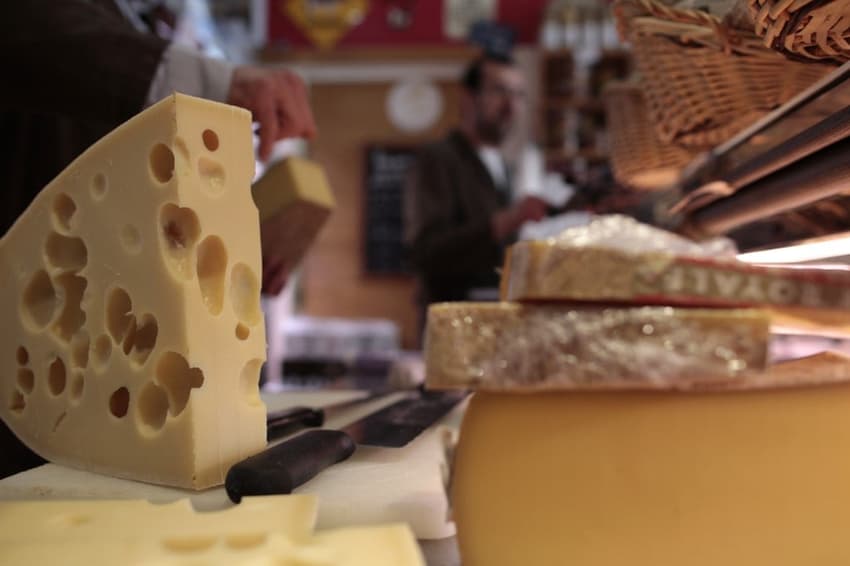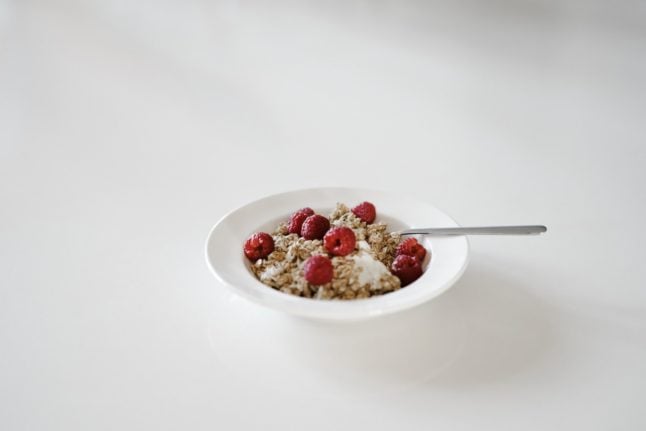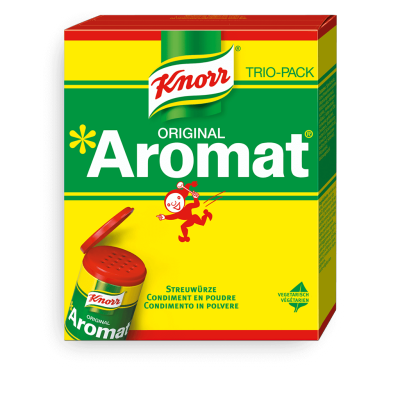Six common myths about Swiss food you need to stop believing

Unlike France and Italy, Switzerland is not known for its gastronomy. But if you live here, you have probably heard some of these myths.
While there’s nothing really ‘mythical’ about Swiss food, some myths need to be dispelled anyway.
Let’s face it — unlike France and Italy, Switzerland is not known for its gastronomy.
But if you live here, you need to get some facts straight about the food you eat (or even the food you wouldn’t touch).
Myth 1: The Swiss don't call 'Swiss cheese' Swiss cheese
Just as there isn’t such a thing as Swiss language, there also isn’t a singular ‘Swiss’ cheese.
In many countries, any cheese with holes is called ‘Swiss’, but in Switzerland that ‘holey’ cheese is Emmentaler.
If you visit Switzerland and ask for Swiss cheese, all you'll get is a blank stare.
Myth 2: Swiss food is bland
If you believe Swiss food has no ‘kick’ to it, just try Cenovis.
This brown sandwich paste made of yeast, invented in 1931 in the canton of Aargau, is so salty, it can only be eaten when a thick layer of butter is spread on a slice of bread.
For those who have never tried it, according to the bastion of knowledge that is Wikipedia, Cenovis "is similar to English Marmite, Brazilian Cenovit, and Australian Vegemite".
According to the company itself, Cenovis' history is closely tied to that of the amber ale.
"In 1931, a brewer recycled the yeast used for the fermentation of beer: vegetal substances very rich in vitamin B1. After several tests, the product was perfected and a group of Swiss brewers launched Cenovis; the product was an immediate success and the famous spread was so good that from 1955 it was included in the rations for Swiss soldiers... Healthy and strong soldiers!"[1]
Still, Cenovis sandwiches are quite popular in Switzerland.
Myth 3: Swiss-produced food is better than foreign food
While many people will gladly commute across the border to France, Italy, and German to buy cheaper food, others would much rather pay higher prices for the “Made in Switzerland” label.
They claim local foods are of higher quality and taste better than imported ones.
It is not quite clear whether this is a myth, but there’s no scientific proof that either side is right or wrong.
At the end of the day, it's up to you and your tastebuds.
Myth 4: 'Swiss Miss' is not Swiss at all
American tourists plonking down at a Swiss cafe and asking for a glass of Swiss Miss are likely to be in for a rude shock when they realise the American hot chocolate drink is not Swiss at all.
In fact, Swiss Miss is not well known outside of the US - and particularly not in Switzerland.
Swiss Miss was invented in the 1950s by a Sicilian immigrant to the United States. Originally it was served only on airplanes, but eventually became so popular that you'll find it in pantries all across the United States.
As for why it got that name, your guess is as good as ours.
Myth 5: The Swiss haven’t invented any foods or drinks
OK, so Swiss Miss isn't a Swiss invention, but actually, the Swiss have had an important role in culinary innovation.
Perhaps the most famous Swiss food is muesli - otherwise known as birchermüsli - which was invented by Swiss doctor Maximilian Bircher-Benner in 1900.
The cereal made of oats, grains, nuts, seeds and fresh or dried fruits grew in popularity and now can be found the world over.

Photo by Annie Spratt , Unsplash
Another (in)famous Swiss invention is instant coffee, which is now found in the back of cupboards the world over.
READ MORE: How Switzerland won the race to invent instant coffee
Besides Cenovis mentioned above, there is the Aromat powdered seasoning. There is hardly a household in Switzerland that doesn’t have this condiment in the kitchen.
It is most commonly used on boiled or hard-cooked eggs.

Knorr
And let’s not forget Rivella, the quintessential Swiss soda drink made from milk whey.
It is said that only those who were born and bred in Switzerland actually enjoy the unusual taste of this drink. But that, too, may be a myth.
Myth 6: If it sounds appetising, then it must be
Actually, the opposite is true as well.
Take, for example, cholera.
Yes, cholera. While you may naturally be put off by this name, it is actually a delicious savoury pie, which just happened to be invented during the cholera epidemic in the 19th century.
It combines cheese with various vegetables, and is a hearty meal by itself.
Comments
See Also
While there’s nothing really ‘mythical’ about Swiss food, some myths need to be dispelled anyway.
Let’s face it — unlike France and Italy, Switzerland is not known for its gastronomy.
But if you live here, you need to get some facts straight about the food you eat (or even the food you wouldn’t touch).
Myth 1: The Swiss don't call 'Swiss cheese' Swiss cheese
Just as there isn’t such a thing as Swiss language, there also isn’t a singular ‘Swiss’ cheese.
In many countries, any cheese with holes is called ‘Swiss’, but in Switzerland that ‘holey’ cheese is Emmentaler.
If you visit Switzerland and ask for Swiss cheese, all you'll get is a blank stare.
Myth 2: Swiss food is bland
If you believe Swiss food has no ‘kick’ to it, just try Cenovis.
This brown sandwich paste made of yeast, invented in 1931 in the canton of Aargau, is so salty, it can only be eaten when a thick layer of butter is spread on a slice of bread.
For those who have never tried it, according to the bastion of knowledge that is Wikipedia, Cenovis "is similar to English Marmite, Brazilian Cenovit, and Australian Vegemite".
According to the company itself, Cenovis' history is closely tied to that of the amber ale.
"In 1931, a brewer recycled the yeast used for the fermentation of beer: vegetal substances very rich in vitamin B1. After several tests, the product was perfected and a group of Swiss brewers launched Cenovis; the product was an immediate success and the famous spread was so good that from 1955 it was included in the rations for Swiss soldiers... Healthy and strong soldiers!"[1]
Still, Cenovis sandwiches are quite popular in Switzerland.
Myth 3: Swiss-produced food is better than foreign food
While many people will gladly commute across the border to France, Italy, and German to buy cheaper food, others would much rather pay higher prices for the “Made in Switzerland” label.
They claim local foods are of higher quality and taste better than imported ones.
It is not quite clear whether this is a myth, but there’s no scientific proof that either side is right or wrong.
At the end of the day, it's up to you and your tastebuds.
Myth 4: 'Swiss Miss' is not Swiss at all
American tourists plonking down at a Swiss cafe and asking for a glass of Swiss Miss are likely to be in for a rude shock when they realise the American hot chocolate drink is not Swiss at all.
In fact, Swiss Miss is not well known outside of the US - and particularly not in Switzerland.
Swiss Miss was invented in the 1950s by a Sicilian immigrant to the United States. Originally it was served only on airplanes, but eventually became so popular that you'll find it in pantries all across the United States.
As for why it got that name, your guess is as good as ours.
Myth 5: The Swiss haven’t invented any foods or drinks
OK, so Swiss Miss isn't a Swiss invention, but actually, the Swiss have had an important role in culinary innovation.
Perhaps the most famous Swiss food is muesli - otherwise known as birchermüsli - which was invented by Swiss doctor Maximilian Bircher-Benner in 1900.
The cereal made of oats, grains, nuts, seeds and fresh or dried fruits grew in popularity and now can be found the world over.

Photo by Annie Spratt , Unsplash
Another (in)famous Swiss invention is instant coffee, which is now found in the back of cupboards the world over.
READ MORE: How Switzerland won the race to invent instant coffee
Besides Cenovis mentioned above, there is the Aromat powdered seasoning. There is hardly a household in Switzerland that doesn’t have this condiment in the kitchen.
It is most commonly used on boiled or hard-cooked eggs.

Knorr
And let’s not forget Rivella, the quintessential Swiss soda drink made from milk whey.
It is said that only those who were born and bred in Switzerland actually enjoy the unusual taste of this drink. But that, too, may be a myth.
Myth 6: If it sounds appetising, then it must be
Actually, the opposite is true as well.
Take, for example, cholera.
Yes, cholera. While you may naturally be put off by this name, it is actually a delicious savoury pie, which just happened to be invented during the cholera epidemic in the 19th century.
It combines cheese with various vegetables, and is a hearty meal by itself.
Join the conversation in our comments section below. Share your own views and experience and if you have a question or suggestion for our journalists then email us at [email protected].
Please keep comments civil, constructive and on topic – and make sure to read our terms of use before getting involved.
Please log in here to leave a comment.